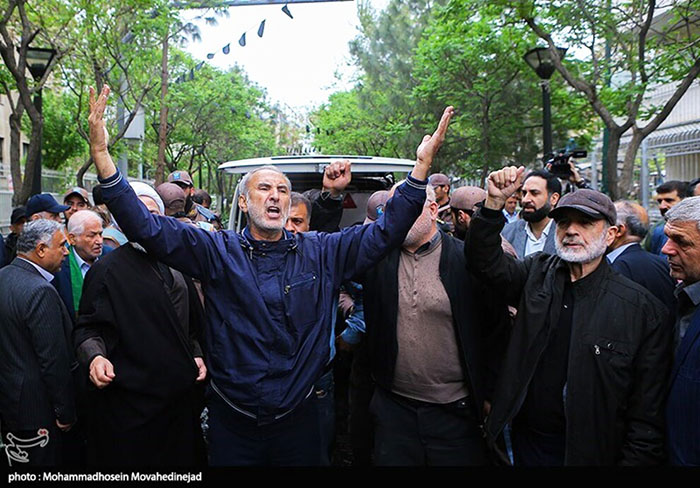Khomeini’s directive read in part: “Those who have insisted on their hypocritical position in prisons across the country are enemies and sentenced to death… do not be tempted, doubt, and hesitate, and try to be strong against the infidels.”
Following Khomeini’s death in 1989, Nayiri’s career in the judiciary continued to ascend. He was appointed by Mohammad Yazdi as the deputy of the Supreme Court and served in that position for more than two decades. His influence on judicial matters remained extensive, particularly in the handling of cases involving political dissent and financial corruption.
In May 1989, a letter signed by Mehdi Karroubi and Hassan Sanei urged that Nayiri be appointed as the judge overseeing the confiscation and redistribution of assets previously belonging to figures associated with the Pahlavi regime. They praised Nayiri’s “resoluteness” and proposed that his decisiveness was essential to prevent further harm to the public treasury.
“There are many cases in the courts… which take several years, and this causes harm to the treasury and the rights of the deprived and oppressed in society… Mr. Nayiri is a pious, decisive individual who is considered by His Excellency and is also considered by the country’s judiciary,” the letter stated.

